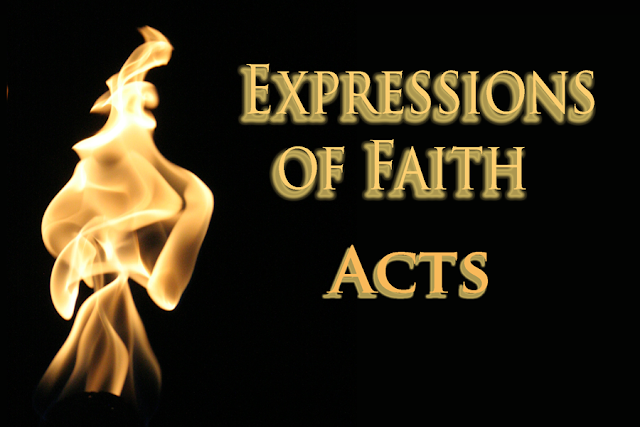Thoughts on Study Questions from Acts Ch 7 on 10/28

My Sunday school class/Life Group is studying the book of Acts. I posted these questions this Monday and encouraged you to jot your thoughts down.
It's Wednesday. This post consists of some comments from the class discussion.
If you’d like a PDF file of the questions, email me at crd.author@gmail.com
Chapter 7 – Vv 1-53
The passage begins with a question you would expect. The next 52 verses are Stephen's response to the Chief Priest's question. Read the whole speech. Think about the organization of the defense and the examples used by Stephen.
Look particularly at vv37-38. Why include those particular words?
"Prophet like Moses" is the wording we focused on.
Moses is considered by many Bible scholars to be a "type" of Christ. The word "type" is generally used to denote a resemblance between something [Moses] and something in the future of that object or person [Jesus]. Here is an extensive list of the parallels between the two. While I'm not convinced about a couple of those listed, the bulk of the list does show similarities between the lives of Moses and Jesus.
According to
According to another note, there is a lively discussion in the Dead Sea Scrolls about the five characteristics that the Messian and Moses have in common.
Moses is considered by many Bible scholars to be a "type" of Christ. The word "type" is generally used to denote a resemblance between something [Moses] and something in the future of that object or person [Jesus]. Here is an extensive list of the parallels between the two. While I'm not convinced about a couple of those listed, the bulk of the list does show similarities between the lives of Moses and Jesus.
According to
- one class member's footnote, using Moses as this example turned the tables on the Sanhedrin.
- another footnote, Deuteronomy 18 where Moses is rejected by the Hebrews is like Jesus being rejected by the Jewish clergy.
According to another note, there is a lively discussion in the Dead Sea Scrolls about the five characteristics that the Messian and Moses have in common.
Do you think the audience changed its tone when it heard this?
Most likely.
Why or why not?
They understood the intention of the examples Stephen uses and the finger of guilt for killing the Messiah was pointing at them.
V44-50: Stephen kind of picks up speed here. He condenses all the rest of Jewish history into this section. Why does he select the people, places, events, and Scripture he does?
 |
| See the other answers for reasons. |
V51-53: Since when in the speech has the Sanhedrin has been becoming less excited about Stephen's "defense?”
Stephen challenges their standing as religious leaders by calling them
- Stiff-necked - "a proud or stubborn person: one with a haughty bearing"
- Uncircumcised hearts and ears. To Jewish males, circumcision was a rite of passage because it helped distinguish them from the other tribal people in their areas. Someone with an uncircumcised heart and ears would be describing a heathen or Gentile.
He really socks it to them here. What charges does he bring against them?
- Actively resisting the Holy Spirit, who'd just come to fill believers. The Sanhedrin is actively resisting the Holy Spirit.
- Betrayers and murderers.
How is this speech different from one of Peter's sermons?
There is similar content, but the expected response was probably different.
We ended with an unanswered question.
We ended with an unanswered question.
Why did the Sanhedrin make Stephen the first Christian martyr rather than killing one of the disciples?
We got this far this week.
We got this far this week.
V54-60
The reaction to Stephen's concluding remarks is severe. Why "gnash teeth"?
Why didn't they stone Peter?
How does Stephen respond?
What is the final reaction in the Sanhedrin's meeting place?
Which group would be "leading the charge" at this time?
Why?
Who do we meet in v58?
Stephen's final words sound a lot like Who?
When?
Why do you think that Luke, a doctor, used the term “he fell asleep”?
Friday, This week Expressions of Faith is Hearing
Follow me on Twitter: @CRDowningAuthor and Facebook: https://www.facebook.com/CRDowningAuthor
My website is: www.crdowning.com
I'd appreciate your feedback on Blogger!


Comments
Post a Comment